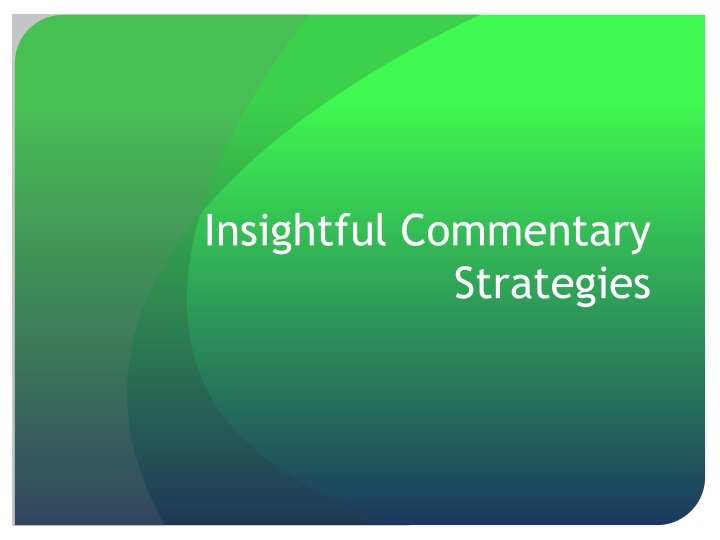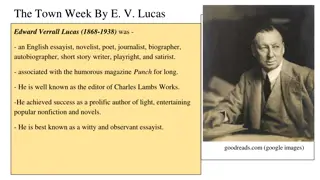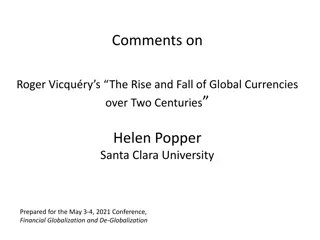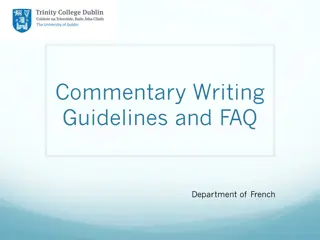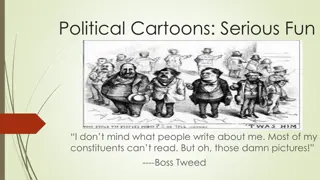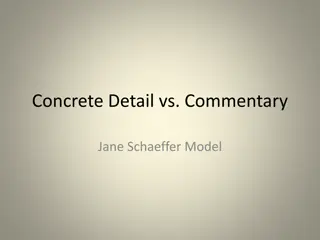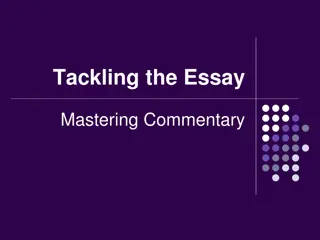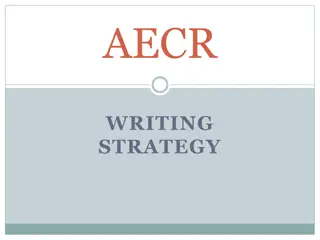Mastering the Art of Insightful Commentary
Understanding the differences between summary and commentary, exploring the multifaceted nature of commentary, and following key rules enhance your ability to provide deep, original insights in your writing. Avoid subjective phrases, maintain a 2:1 ratio of commentary to summary, and follow prompts carefully for effective commentary. Your commentary should provide valuable interpretations and evaluations, going beyond mere summary. Embrace these strategies to elevate your writing with impactful commentary.
Download Presentation

Please find below an Image/Link to download the presentation.
The content on the website is provided AS IS for your information and personal use only. It may not be sold, licensed, or shared on other websites without obtaining consent from the author.If you encounter any issues during the download, it is possible that the publisher has removed the file from their server.
You are allowed to download the files provided on this website for personal or commercial use, subject to the condition that they are used lawfully. All files are the property of their respective owners.
The content on the website is provided AS IS for your information and personal use only. It may not be sold, licensed, or shared on other websites without obtaining consent from the author.
E N D
Presentation Transcript
Insightful Commentary Strategies
Differences Between Summary & Commentary Summary is a brief account giving the main points of something. Commentary is a series of explanations and interpretations. Summary is surface. Commentary is deep. Summary is regurgitation. Commentary is original.
Multifaceted Nature of Commentary There is only one way to provide a summary: You read or view a work, and then write down a recap of what the work is all about. However, there are many ways to provide commentary, including: Opinion: your perspective, judgment, or appraisal of a work Interpretation: your explanation of an element of the work that is not immediately obvious Insight: your discussion of the inner nature of a work Personal reaction: your personal emotions about a work Evaluation: your examination and judgment of the value of a work
Summary vs. Commentary Summary: Something you would read in a movie description or on the back of a book Commentary: Something you would read in a film or book review
Rules to Consider Avoid Subjective Phrases Even when giving commentary in the form of an opinion, avoid using subjective phrases like I hope, I believe, and I think. These are just throwaway phrases. They are redundant (you wrote the essay, so it is obvious you think, believe, or hope what is written), and they reduce your credibility. Maintain a 2:1 Ratio of Commentary to Summary In general, you should provide approximately two points of commentary for every specific detail you offer. While summary is still important for giving your reader context, commentary is critical to writing a sophisticated essay. Follow the Prompt s Direction Sometimes the prompt will state for you to only offer opinion; other times, you are expected to only offer insight or interpretation. Other times, you ll have more freedom as to what type of commentary you can include in your essay. The important idea to remember is to follow the prompt s direction for the assignment.
Final Tips Your commentary should not merely repeat or reword your evidence, topic sentence, or thesis. You should always include more commentary than summary or evidence. Commentary should follow evidence. No paragraph should end with a quote but rather insightful commentary.
